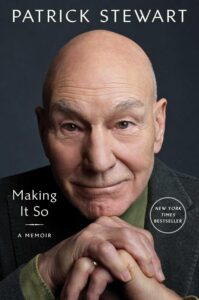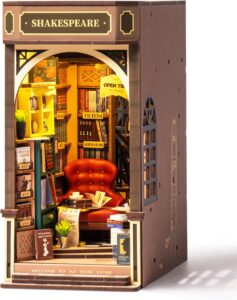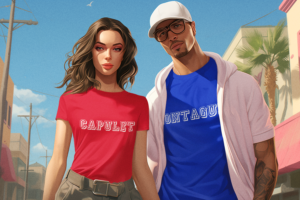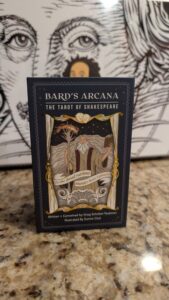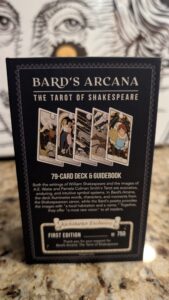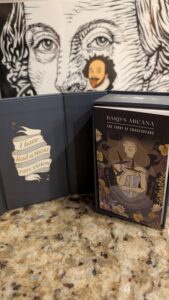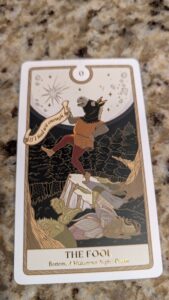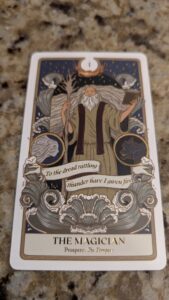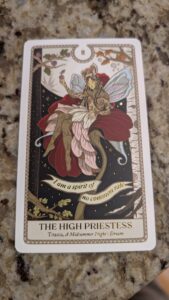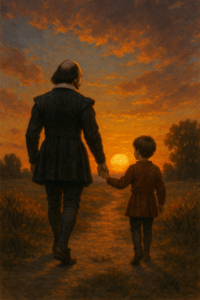Author’s Note – For a long time, I confused Hamnet (2020) by Maggie O’Farrell with the books of the Hogarth Shakespeare (2018) series. The latter was a series of modern novelizations of Shakespeare’s work by contemporary authors, including Margaret Atwood. Somewhere, I got it into my head that Hamnet was that series’ version of Hamlet. It’s not, and never was.
For everything we don’t know about Shakespeare’s life, there’s a novel that ponders how it might have gone. This fall, when the movie arrives, a whole lot of people are going to suddenly become interested in the short life of Hamnet, Shakespeare’s only son, thanks to Hamnet by Maggie O’Farrell. I didn’t read this one when it first came out, thinking that it was some overarching attempt to map Hamnet’s story into a Hamlet story. But with the movie coming out next month, I decided to try it again.
Though Hamlet does play an eventual part in this story, it’s thankfully not “a Hamlet story.” Instead, it’s exactly what it seems – a fictionalized biography of Anne (or, here, Agnes) Hathaway, a woman who marries her Latin tutor and has three children, one of whom dies.
I think that last thought is how we begin. I often explain Hamlet by telling people, “Hamlet’s father died.” It’s a powerful emotional punch that frames the entire play. Likewise, here, “Agnes’ son died.” I don’t think that’s a spoiler; it’s generally in the opening lines of the marketing material. You know what you’re getting into with this book.
Here’s the most fascinating thing about the book, that I decided I love. The word “Shakespeare” never appears. Or if it does, it appears so infrequently that I missed it completely. This is not the story of “Shakespeare’s wife”. It is the story of Agnes, and Shakespeare is only ever referred to indirectly – he is the father, the husband, the Latin tutor. There are times when the narrative has to talk in circles a little bit to make this work, but once you get used to it, it’s a powerful voice to choose. For this to be the story of Shakespeare’s son would make Agnes a minor character. No, this is the story of a woman who lost her child, and it doesn’t even matter what her husband ultimately did for a living. You could, in fact, read this book without ever realizing that it’s about the Shakespeare family.
A quick note on “Agnes,” since it had me wondering as well. Why not Anne? We’ve always known Shakespeare’s wife as Anne Hathaway. Given that there’s a current working actress with the same name, it’s the source of many memes. But here, O’Farrell has chosen to go with Agnes. I’m told that, for the period, the names were fairly interchangeable. This is interesting, and not something we think about much today. I had an Aunt Agnes. She was Aggie.
The audiobook makes this a bit clearer, though, by pronouncing it “AHN-yes”, with a soft G, instead of how we might traditionally hear it today. With that in mind, “Ahn-yes” is easily shortened to “Anne.” Ok, mystery solved.
The story itself is well-written and does a good job of mapping to those details of Shakespeare’s life that we do know – the glove business, the debt issues. Agnes becomes pregnant, and the wedding is rushed. The relationship between the families is strained. John, the Latin tutor’s father with the debt issues, is only appeased when he figures out a way the situation might be financially beneficial for him.
The story remains in Stratford, and details Agnes’ life in plague-ridden Elizabethan England. They try to make their new life together work. They have three babies. The husband leaves for London, presumably with the opportunity to help expand his father’s business, but soon finds himself pulled toward the theatre. We hear about his life through the occasional letter home. No play names are ever mentioned; we just hear occasionally about “a new comedy” or an opportunity to play before the Queen. Sometimes, infrequently, he returns home, always anxious to return to London.
Life is hard, and we know this is not a happy story. The inevitable happens, Hamnet passes away, and we’re an audience watching what happens to a marriage after such a tragedy. He wants to go back to London? What, how? How is that even a thought? But it is, and he does. I’m not going to get much into how the story finally ends, because the author clearly builds to something, and I’m not going to take that from you. I had some issues with it; I think it didn’t pay off the way she hoped. But that’s just me and my one opinion.
(Quick trigger warning, and I don’t usually do this – the aftermath of Hamnet’s death is depicted in great and lengthy detail, including treating his body, sewing him into the shroud, and his ultimate burial. If you already found this a heart-breaking story, this section might be especially difficult to get through.)
Is Hamnet Hamlet?
The connection has always been obvious, hasn’t it? Shakespeare’s most famous character, Hamlet, is one letter away from the name of his dead son Hamnet. In a place and time where spelling, including names (Anne/Agnes) was not exactly bound by strict rules. How does that play into the story? I’m just going to say, “Don’t worry, it does.” and leave it at that.
Something For Shakespeare Geeks
Something I enjoyed throughout the story was finding “easter egg” Shakespeare references. There are no direct quotes. Or are they? When Judith is sad that her father has once again left them to return to London, she says, “Will he not come again?” which I can only hear as Ophelia’s song:
OPHELIA
[Sings]
And will he not come again?
And will he not come again?
I’m not even sure Judith said it exactly like that (I only have an audiobook), but that’s what I’m talking about. The story simultaneously never mentions Shakespeare and yet still shows how his life inspired much of his writing. Later, when Agnes is going through Hamnet’s clothes, it almost certainly has to be in reference to Constance’s famous speech on grief:
CONSTANCE
Grief fills the room up of my absent child,
Lies in his bed, walks up and down with me,
Puts on his pretty looks, repeats his words,
Remembers me of all his gracious parts,
Stuffs out his vacant garments with his form;
Then, have I reason to be fond of grief?
Maybe I’m reading too much into it. From the story’s perspective, Shakespeare and his wife don’t have the kind of relationship where he’d ever know these thoughts were going through her mind. But that’s nitpicking. The author could just as easily have written in this scene for the readers who might catch the connection.
All in all, an excellent book worthy of a read. I’m going to pick up a paper copy and “put it in rotation” for my family’s book club, which in this case means that my daughter, wife, and mother-in-law will all take turns reading it. If this were a Shakespeare book, I wouldn’t do that. But this story stands by itself without the help of the Shakespeare name, and I think the movie’s going to show the same thing. (I hope that the people going to see Paul Mescal as Shakespeare aren’t disappointed at how little he’s actually in it!)


